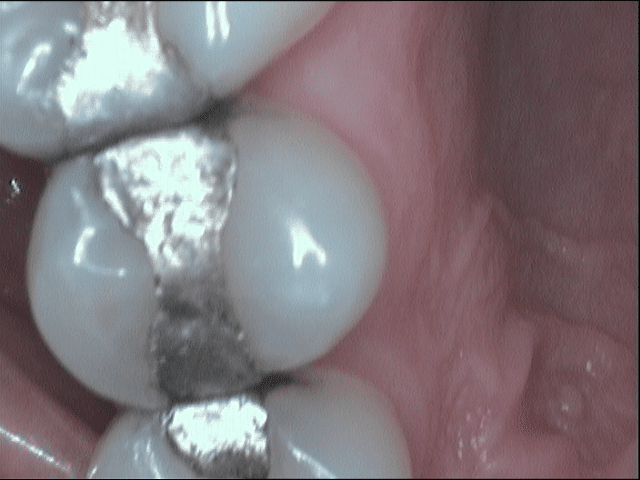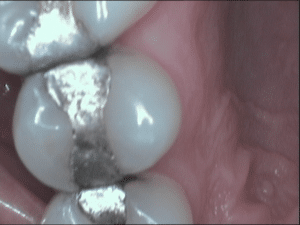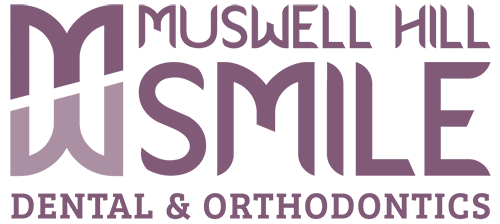
Dental amalgam is a dental filling material used to fill cavities caused by tooth decay. It has been used for more than 150 years in hundreds of millions of patients around the world.
Dental amalgam is a mixture of mercury, silver, tin and copper. Mercury, which makes up about 50 percent of the compound, is used to bind the metals together and to provide a strong, hard, durable filling. After years of research, mercury has been found to be the only element that will bind these metals together in such a way that can be easily manipulated into a tooth cavity.

Mercury in dental amalgam is not poisonous. When mercury is combined with other materials in dental amalgam, its chemical nature changes, so it is essentially harmless.
The amount of mercury released in the mouth under the pressure of chewing and grinding is extremely small and no cause for alarm.
A 2003 paper published in the New England Journal of Medicine states, “Patients who have questions about the potential relation between mercury and degenerative diseases can be assured that the available evidence shows no connection.”
FDA (US Food and Drugs Administration) has reviewed the best available scientific evidence to determine whether the low levels of mercury vapor associated with dental amalgam fillings are a cause for concern. Based on this evidence, FDA considers dental amalgam fillings safe for adults and children ages 6 and above.
If your fillings are in good condition and there is no decay beneath the filling, FDA does not recommend that you have your amalgam fillings removed or replaced. Removing sound amalgam fillings results in unnecessary loss of healthy tooth structure, and exposes you to additional mercury vapor released during the removal process.
However, if you believe you have an allergy or sensitivity to mercury or any of the other metals in dental amalgam (such as silver, tin, or copper), you should discuss treatment options with your dentist.




